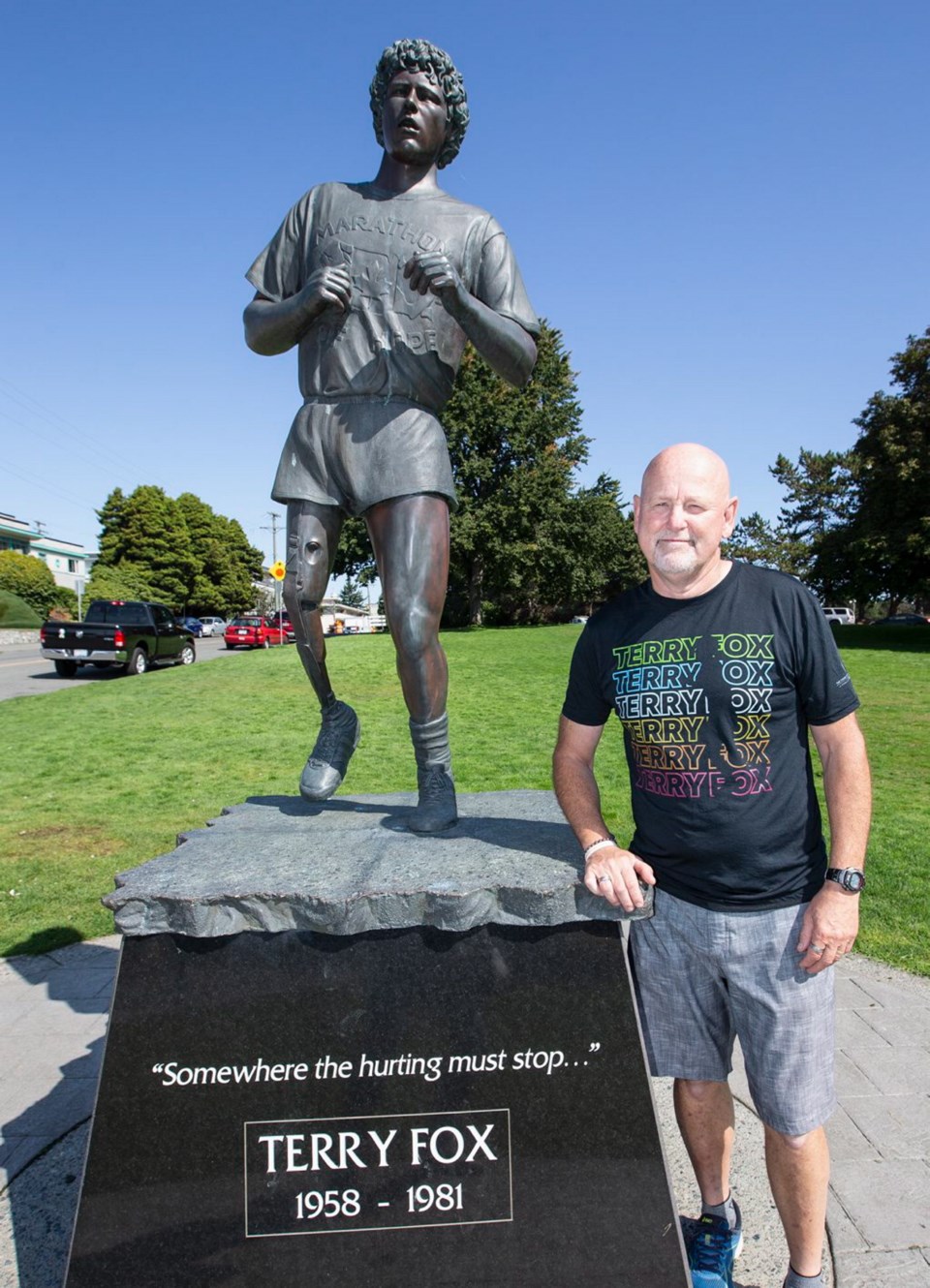Almost four decades later, I can’t remember if I told the Canadian on the train that Terry Fox had died, or if he told me.
It was 1981. We were on the British Rail run between London and Dover, a couple of strangers drawn together by the flags sewn on our backpacks. The car was crammed, no place to sit, so we stood in the aisle, exchanging news from home.
A girl from Quebec joined us. She didn’t speak English but had overheard Terry’s name. “Qu’est-ce qui s’est passé?” she asked. Terry didn’t make it, I replied in halting high school French. He died.
The girl began to cry, really cry, her tears falling freely as the train rocked and rocketed through the Kentish countryside. The other passengers looked at us in consternation, wondering what was wrong, but there was no point trying to explain.
You had to be Canadian to understand. You had to have been there.
So, here was my question for Fred Fox on Tuesday: Do people still get it?
Can they truly grasp what his brother meant to Canadians back then, or is Terry’s legend a vicarious memory, the stuff of folklore and history lessons that, like the Depression, the Second World War or the ’60s, had to be experienced firsthand to really be understood?
Fred, standing beside the statue of his brother at Victoria’s Mile Zero, paused briefly, then replied: “I think people do still get it.” They do so because Terry’s story, which every Canadian schoolchild learns before they learn the names of the provinces, intertwines with real-life, relatable experience. “Everybody has been touched by cancer, in one way or another.”
And yes, the values Terry personified — the Fox family is big on the word “values” — mean as much now as they did then.
Sixty-two-year-old Fred, who was born 14 months before Terry, was in Victoria on Tuesday at the beginning of a cross-Canada journey on behalf of the Terry Fox Foundation and Sept. 15’s Terry Fox Run. Around the world — runs are held in more than 30 countries — more than $750 million has been raised for cancer research.
Canada is where the Fox name really resonates, though. In 2004, when the CBC asked the public to vote for the greatest Canadian of all time, the surprise wasn’t that Terry placed second, but that he wasn’t first (that honour went to Tommy Douglas).
Terry embodied the qualities we show when we’re at our best: humility, selflessness, determination, honesty, a quiet strength. He never appeared to care about the glory, could come across as gruff and tough — toughness having nothing to do with the ability to dish it out, and everything with the ability to take it. It would be wrong to call him fearless, though; you can’t have courage without fear. He was a combination of guts and goodness.
“People recognized he wasn’t out there doing his run for what he could gain from it,” Fred says. Sure, when Terry was first diagnosed, when he lost his leg at age 18, his focus was on himself, what his future might be, how girls would look at him — but then he started to see what cancer was doing to kids in the pediatric ward. “That impacted him so much.” It made him want to help.
He raised millions for cancer research, but none of it went into his own pocket. After Terry’s cancer forced him off the road near Thunder Bay, Ont., 39 years ago this week, he came home to Port Coquitlam flat broke, Fred says. “I had to lend him some money to buy our mum a Christmas gift.”
That’s how Fred remembers Terry: not as an icon, but a brother. “My memories of Terry aren’t about the Marathon of Hope,” he says. They’re of a normal Canadian kid, one who idolized Bobby Orr and Darryl Sittler, who had to work harder than everyone else to make his soccer and basketball teams.
As Fred speaks, a steady stream of tourists — Japanese, Chinese, British — take photos at the Terry Fox statue. Sarnia, Ontario’s Jennifer and Kevin Snauwaert stop by after dropping off their son for his first day at UVic. They were only a few years old when Terry died, but yes, they say, what he represents matters not just to them but to their son, too.
“In every community,” Jennifer says, “it’s part of our consciousness.”



